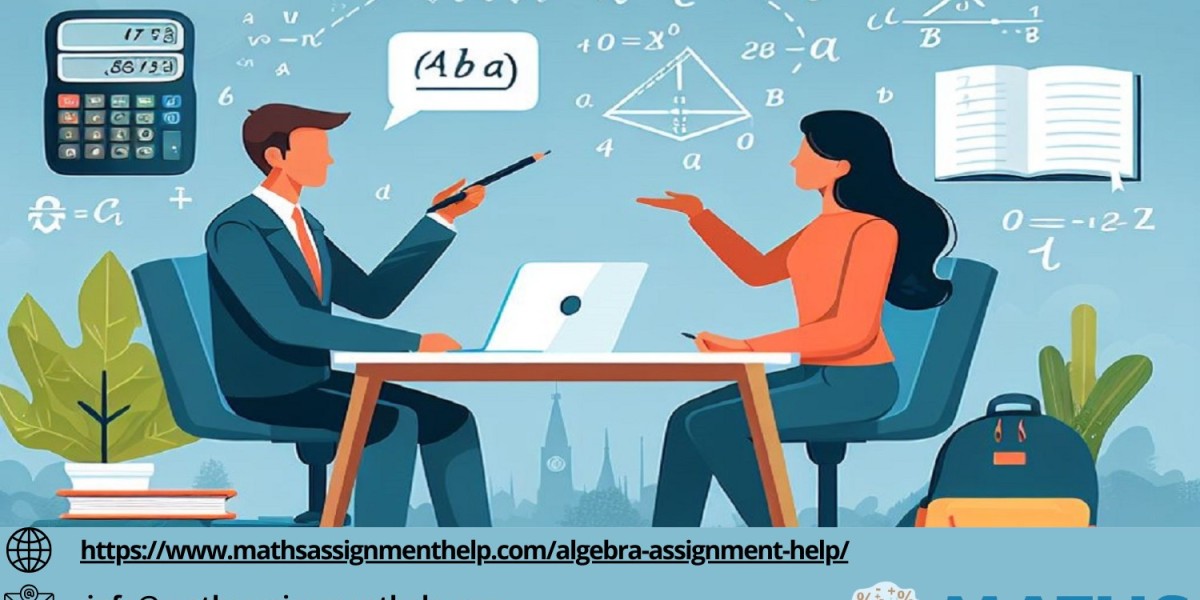Welcome to our comprehensive guide where we delve into the depths of advanced algebra concepts. Whether you're a master's level student or simply intrigued by the intricacies of algebra, this blog is tailored to provide insightful explanations on two theoretical questions. At mathsassignmenthelp.com, we understand the complexities students face when tackling algebra assignments. That's why we're here to offer clarity and guidance on these challenging topics. So, grab your metaphorical algebraic compass, as we navigate through these theoretical questions to provide a deeper understanding of the subject matter. If you're seeking expert assistance for your algebra assignments, look no further than our Algebra Assignment Help Online services.
Question 1:
Exploring the Fundamental Theorem of Algebra
Answer:
The Fundamental Theorem of Algebra is a cornerstone principle in the realm of algebra, asserting that every non-constant polynomial equation has at least one complex root. This theorem essentially implies that any polynomial equation can be factored into linear terms over the complex numbers. To comprehend this theorem fully, let's break it down into its essential components.
At its core, the Fundamental Theorem of Algebra stems from the concept of factorization. When we consider a polynomial equation of degree greater than one, it can be factored into linear or quadratic terms. For example, a quadratic equation can be expressed as the product of two linear factors. However, when we extend this concept to higher-degree polynomials, such as cubic or quartic equations, the factorization process becomes more intricate.
The theorem assures us that even the most complex polynomial equations possess at least one solution in the complex number system. This is crucial because it underscores the completeness of the complex numbers, demonstrating their efficacy in solving polynomial equations of any degree. Moreover, the theorem elucidates the interconnectedness between algebraic and geometric interpretations, bridging the gap between abstract mathematical concepts and tangible geometric representations.
In essence, the Fundamental Theorem of Algebra serves as a guiding principle, illuminating the profound relationship between polynomial equations and their solutions within the complex plane. Its implications reverberate throughout various branches of mathematics, underscoring its significance in algebraic theory and application.
Question 2:
Unraveling the Mysteries of Vector Spaces
Answer:
Vector spaces represent a fundamental concept in linear algebra, encapsulating the notion of linear combinations and geometric transformations. Understanding the intricacies of vector spaces is paramount for mastering advanced algebraic concepts, making it a pivotal topic of study for master's level students.
At its essence, a vector space is a set of vectors that satisfy certain properties, namely closure under addition and scalar multiplication, as well as the existence of a zero vector and additive inverses. These properties delineate the foundational framework upon which vector spaces are constructed, enabling us to explore their myriad applications across diverse mathematical domains.
One of the key insights gleaned from the study of vector spaces is the concept of dimensionality. The dimension of a vector space denotes the number of linearly independent vectors needed to span the entire space. This notion provides a quantitative measure of the space's complexity, elucidating its structural properties and inherent flexibility.
Moreover, vector spaces serve as a versatile tool for modeling real-world phenomena, ranging from geometric transformations to quantum mechanics. Their inherent structure facilitates the formulation of mathematical models that accurately depict complex systems, empowering mathematicians and scientists to analyze and interpret data with precision.
In summary, the study of vector spaces offers a profound glimpse into the underlying structure of mathematical objects, unveiling a rich tapestry of interconnected concepts and principles. By unraveling the mysteries of vector spaces, we gain invaluable insights into the nature of linear algebra and its pervasive influence across diverse disciplines.
Conclusion:
In conclusion, mastering advanced algebra concepts requires a deep understanding of fundamental principles such as the Fundamental Theorem of Algebra and vector spaces. These theoretical questions serve as touchstones, guiding students through the intricate terrain of algebraic theory and application. At mathsassignmenthelp.com, we're committed to providing unparalleled support and assistance to students seeking to unravel the complexities of algebra. Whether you're grappling with abstract theorems or practical applications, our Algebra Assignment Help Online services are here to guide you every step of the way. Embrace the challenge, embark on your algebraic journey, and unlock the boundless potential that lies within this captivating field of study.



